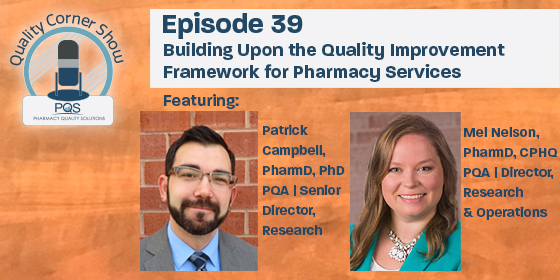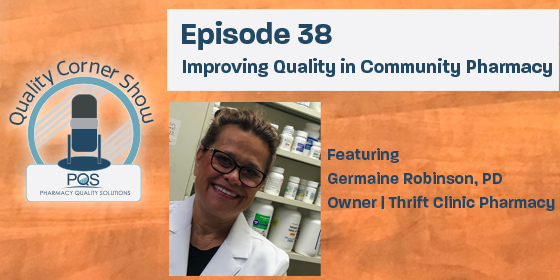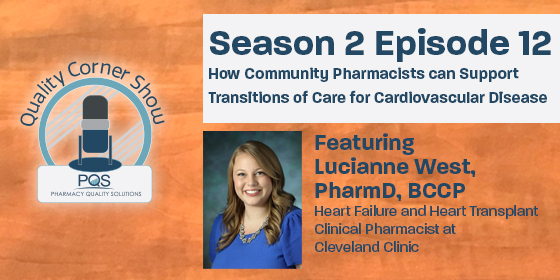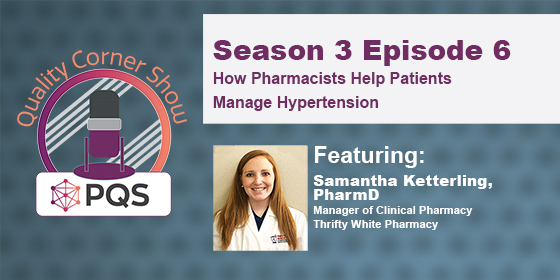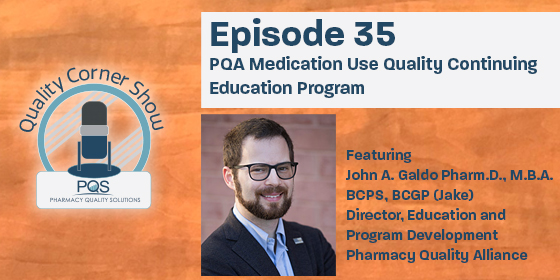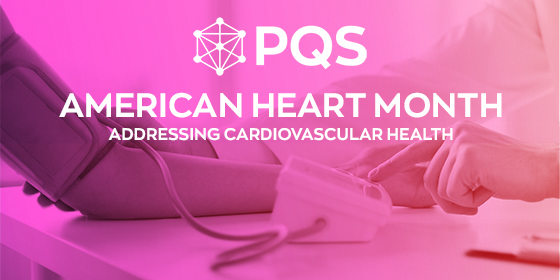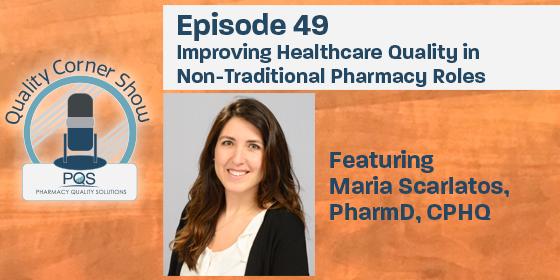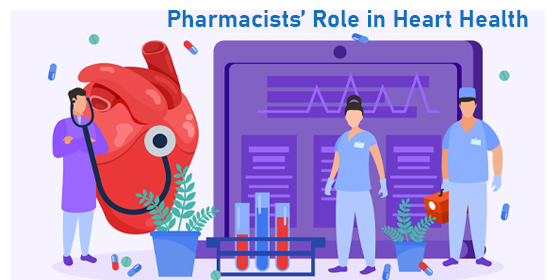
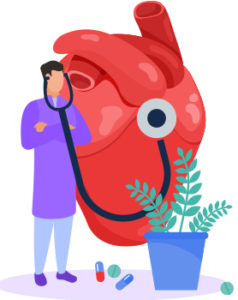 Heart disease is the leading cause of death in the United States, with most patients suffering from coronary artery disease (CAD), or plaque buildup in the arteries called atherosclerosis. Annually, 805,000 Americans suffer a myocardial infarction (MI), including more than 200,000 who have experienced a prior instance of this event. While lifestyle factor modification is an important aspect of care, medications are considered a primary method of treatment for a number of patients to prevent disease progression and mortality. As medication experts, pharmacists play a key role in ensuring optimal medication regimens that prevent the progression of heart disease and prevent future complications including heart attack. Pharmacists are also the most accessible health care provider with an average of 1.5 to 10 times more interactions with patients each year than primary care physicians.
Heart disease is the leading cause of death in the United States, with most patients suffering from coronary artery disease (CAD), or plaque buildup in the arteries called atherosclerosis. Annually, 805,000 Americans suffer a myocardial infarction (MI), including more than 200,000 who have experienced a prior instance of this event. While lifestyle factor modification is an important aspect of care, medications are considered a primary method of treatment for a number of patients to prevent disease progression and mortality. As medication experts, pharmacists play a key role in ensuring optimal medication regimens that prevent the progression of heart disease and prevent future complications including heart attack. Pharmacists are also the most accessible health care provider with an average of 1.5 to 10 times more interactions with patients each year than primary care physicians.
Clinical guidelines are the basis of care for patients at risk of cardiovascular disease and who may have cardiovascular disease. While clinical guidelines act as a road map for treatment, it is important that healthcare providers individualize care for each patient to ensure optimal medication regimens. A recent systematic review in the Journal of the American Heart Association analyzed 43 studies and found that women are less likely than men to be prescribed optimized medication regimens in primary care settings when diagnosed with heart disease or are at high risk of heart disease. Primary care prescription data was analyzed for 2.2 million patients (mean age 51 – 76 years) who were at high risk of an MI, with 28% being women. Per the study, women accounted for fewer aspirin, statin, and ACE-inhibitor prescriptions than men. However, women accounted for more diuretic prescriptions. This summarized that post-MI women were less likely to be prescribed optimized medication regimens when compared with their male counterparts in the inpatient setting, which has been indicated as a possible trend with earlier studies.
[pullquote]Pharmacists are also the most accessible health care provider with an average of 1.5 to 10 times more interactions with patients each year than primary care physicians.[/pullquote]These findings suggest an important opportunity for pharmacists, as medications experts, to be increasingly involved with managing a patient’s medication regimen. A few considerations for appropriate interventions in medication regimens for patients at high risk of cardiovascular disease or who suffer from cardiovascular disease are:
- Patients above age 70 should not receive low dose aspirin as primary prevention of atherosclerotic cardiovascular disease (ASCVD) on a routine basis according to the 2019 ACC/AHA Guideline on the Primary Prevention of Cardiovascular Disease: Executive Summary.
- In patients aged 70 and older, hypertension medication optimization and lifestyle factor modification should be considered, including but not limited to smoking cessation, weight management, and exercise.
- Patients aged 40-70 with diabetes should receive statin therapy unless contraindicated.
- Blood pressure control is a critically important aspect of prevention of ASCVD and decreased progression of cardiovascular disease. ACE inhibitors, angiotensin receptor blockers (ARB), calcium channel blockers, and thiazide diuretics are viable options for treatment depending on patient specific factors.
Pharmacists have the ability to change the narrative and impact the care of women who are at high risk of cardiovascular disease. As professionals who have the ability to work with patients to optimize medication regimens and prevent major cardiovascular events, it is important that pharmacists impact care at the community, primary care, and health system level. Community pharmacists manage patient medication regimens daily and are key figures in the management of patients with cardiovascular disease. As qualified, well-trusted healthcare providers, community pharmacists can identify gaps in care and recommend therapies for patients with cardiovascular disease, leading to improved care of these patients. Based on the study results, women are less likely to be prescribed optimized cardiovascular medication regimens. Community pharmacists are the perfect professional to aid in improving regimens and changing this trend.
Resources:
https://eurekalert.org/pub_releases/2020-05/aha-src051520.php
https://www-ahajournals-org.libproxy.lib.unc.edu/doi/10.1161/JAHA.119.014742
https://www-ncbi-nlm-nih-gov.libproxy.lib.unc.edu/pmc/articles/PMC6756914/
https://www.onlinejacc.org/content/74/10/1376
https://www-ahajournals-org.libproxy.lib.unc.edu/doi/10.1161/HYPERTENSIONAHA.120.15026
https://www-ncbi-nlm-nih-gov.libproxy.lib.unc.edu/pmc/articles/PMC5755826/



